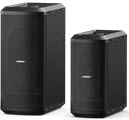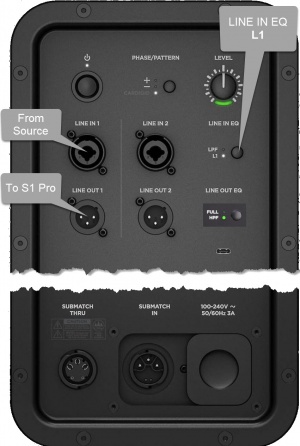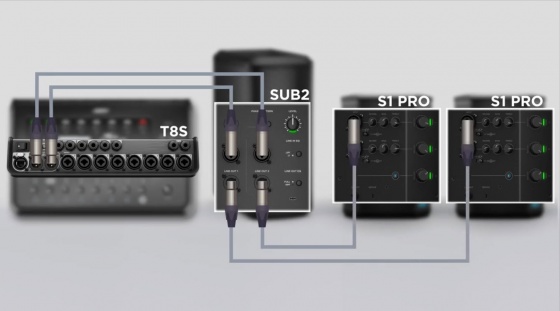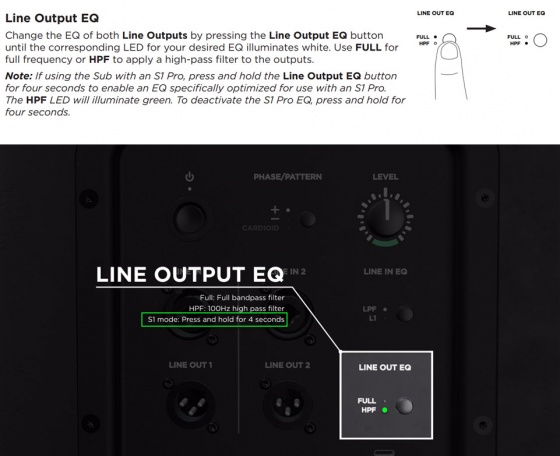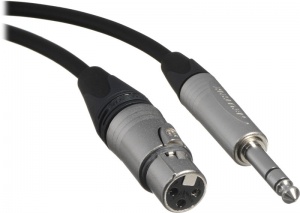Difference between revisions of "Template:S1 Pro with Sub1 or Sub2"
m |
m |
||
| Line 26: | Line 26: | ||
| − | ; | + | ; Can I connect the S1 Pro Line Out to the Sub? |
| − | + | The method described above is preferred, but you can use the {{S1 Pro}} as the sound source (e.g., microphone and guitar and backing tracks via Bluetooth) | |
| + | Note the following: | ||
# The {{S1 Pro}} will sound the same as without the subwoofer (62 Hz - 17 kHz) | # The {{S1 Pro}} will sound the same as without the subwoofer (62 Hz - 17 kHz) | ||
# The Sub1 or Sub2 will cover from 40 Hz (Sub1) 37 Hz (Sub2) to 150 Hz | # The Sub1 or Sub2 will cover from 40 Hz (Sub1) 37 Hz (Sub2) to 150 Hz | ||
| + | # You will be able to push {{S1 Pro}} harder (louder) if you route the signal as described at the top of this article | ||
---- | ---- | ||
Revision as of 19:36, 3 June 2021
Connections with Sub1 or Sub2 and the S1 Pro system
For best results, the signal flow should go from
- The signal source (e.g., ToneMatch Mixer[1], mixer, DJ console) output to
- The Sub1 or Sub2 subwoofer LINE IN 1
- The Sub1 or Sub2 subwoofer LINE OUT 1 to
- The S1 Pro system with channel volume set to 10 o'clock.
Set up this way,
- The Sub1 or Sub2 handles frequencies from 40 Hz (Sub1) 37 Hz (Sub2) to 150 Hz
- The S1 Pro system handles frequencies above 150 Hz
The picture shows a stereo setup, but illustrates the principles for mono. The signal flow is from left to right.
- Recommended cable
Use an XLR to 1/4 inch (6.35 mm) Tip-Ring-Sleeve cable for best results.
If you use an XLR to XLR cable, the signal will likely be too hot for the S1 Pro system
- Can I connect the S1 Pro Line Out to the Sub?
The method described above is preferred, but you can use the S1 Pro system as the sound source (e.g., microphone and guitar and backing tracks via Bluetooth) Note the following:
- The S1 Pro system will sound the same as without the subwoofer (62 Hz - 17 kHz)
- The Sub1 or Sub2 will cover from 40 Hz (Sub1) 37 Hz (Sub2) to 150 Hz
- You will be able to push S1 Pro system harder (louder) if you route the signal as described at the top of this article
